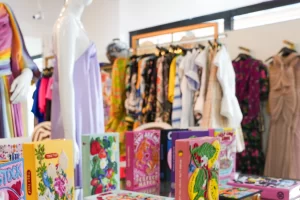Are other languages spoken in France?
Are other languages spoken in France?
As you have seen, the French we know today arose as a result of the evolution and confluence of several languages that gave it the distinctive characteristics that it shows today. We can learn French at school and in high school, on the Internet (thanks to the many online French courses ), in language schools, in universities or in language immersion stays.
We can learn French in France (in Paris, Marseille, Lille…), in Canada, in Morocco, in Lebanon… There are many, many countries where we can go to get the necessary skills to become truly bilingual.
Anyway, you should know that in France, French is not only spoken . As surprising as it may be to many, other languages are spoken in our neighboring country. In fact, we even share languages! In the south of France you will also find Basque and Catalan speakers. On the other hand, Occitan, Provençal, Alsatian and Breton are also spoken, among others.
In other regions of France, such as Normandy, other languages are spoken.
Although it is true that the regional languages spoken on the other side of the Pyrenees do not enjoy the status that Galician, Catalan or Basque can have in Spain, we must not forget that they also exist.
Are you looking for French classes for beginners ? In the Catalan capital, for example, we have a wide range of French courses in Barcelona .
Variants of French: Are other languages spoken in France?
Between the 15th and 16th centuries, the French conquerors reached the shores of the New World and settled in the territories currently occupied by Quebec and Montreal. Thus came the first French colony, in Nova Scotia, which was founded in 1604, a few years before Quebec was founded. Later, the French settlers set foot on the African continent and settled in northern, western and central territories.
All this expansion explains why French is currently one of the most widespread languages on the planet , since it is spoken in 32 different countries around the world. Thus, learning French also means being interested in the different accents and variants of the language, such as African or Canadian variants. What if they are very different? Each one has its own terms and structures, derived from the influence of other nearby languages.
To give you an idea, in Côte d’Ivoire, for example, they are used as «une go» (a girl or girlfriend), «chicotter» (hitting) or «le pia» (money), although in formal contexts they usually recur to the equivalent terms proper to neutral French.
Regarding Canada, although in terms of grammatical structures we do not observe much variation, we can notice certain differences in terms of pronunciation. In fact, the pronunciation of Canadian French is said to more closely resemble that of the 17th century than it does in France today.
Canadian French is characterized, among other things, because sometimes the sound “e” at the end of the word is pronounced “a”. So “parfait” is said “parfa”; words ending in “–oir”, such as “avoir”, are pronounced “-oér” (“avoér”); Words ending in “a” are pronounced as if they ended in a long “a” (“Canadaa”).
Study the different variants of French to travel around the world!
However, the most significant contrasts are found in the lexicon . Given the proximity of Canadian French to the English-speaking world, it is not surprising that it is replete with rubbings and borrowings from English :
Magasiner (CA) → Faire les courses (FR) → make the purchase (ES)
The weekend (CA) → the weekend (FR) → the weekend (ES)
A char (CA) → une voiture (FR) → a car (ES)
Bye / Bye bye (CA) → au revoir (FR) → bye (ES)
C’est l’fun! → c’est marrant! (FR) → What fun! (IT IS)
C’est cute! (CA) → c’est mignon! (FR) → How cute! (IT IS)
Coat (CA) → manteau (FR) → coat (ES)
Carcajou (CA) → glouton (FR) → glutton (ES)
Sweep (CA) → verrouiller (FR) → lock (ES)
Of course, as with Spanish in Spain and Latin America, there are words that are common to both languages in terms of their form (significant), but that have a completely different meaning . For example, the term dépanneur in Canada refers to a grocery store, a small local shop, while in France you would be talking about a person who comes to do some repair at your house, a technician or mechanic.
Learning French means learning its different varieties so that you can move around the world and be able to deal with different French speakers. To do this, all you have to do is arm yourself with a good dictionary and contact a teacher who knows how to explain all the nuances and differences relevant to your learning. Are other languages spoken in France?






